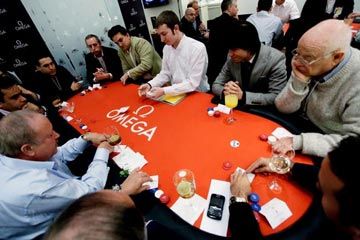Your team's star player is dribbling the ball, and there's not much time left on the clock. He fakes a left, then goes right, then shoots the perfect hook shot -- the one that helps your team take home the title.
No matter whether a team is playing for fun or for a shot at the big time, everyone loves bragging rights. That's where tournaments come into play. A basketball tournament is a series of games involving multiple teams that takes place over a period of one or more days, the outcome of which determines the champion of that specific tournament, league, state or national competition.
Advertisement
A sporting association will often host a basketball tournament in order to promote the sport and encourage friendly competition. The Amateur Athletic Union, Youth Basketball of America, National Junior Basketball, the National Collegiate Athletic Association and state school organizations are all examples of groups that organize and host tournaments every year. These associations sanction the events by having a formal set of rules and guidelines that all participating teams play under, and they often have local, state and national tournaments.
A city or town parks and recreation department may also choose to organize a tournament for teams in their local community. Some corporations, like Nike, host their own tournaments that not only promote the sport, but serve as a marketing tool for the business. Other groups, like Gus Macker, hold tournaments to raise money for charity. Of course, many of these events are organized in part by the parents and coaches of children's teams and adult players in amateur leagues.
But no matter who puts them together, basketball tournaments don't happen without organization and groundwork. Every successful event requires a good deal of preparation in order to ensure that it runs smoothly and that win or lose, everyone has a good time.
Although organizing a basketball tournament can be a lot of work, it can really pay off for your local team or league -- literally. Tournaments are great fundraising opportunities because you can earn money from entry fees, concessions and merchandise. Whether you're putting on an event in conjunction with a local parks and recreation department, a youth or adult league, a high school or college, these extra funds can help keep your group afloat financially and help players subsidize costs or travel expenses to other area tournaments.
So, what's the first (and arguably most important) aspect of organizing a basketball tournament? Read the next page to find out.
Advertisement




